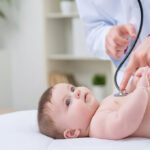Nursing demands a lot of energy and nutrition even if it’s a beautiful, natural process. Both your general health and the quality of your breast milk depend much on your diet. The best foods to eat while nursing will be covered in this post with recommendations based on respected expertise in mother nutrition.
Why Diet Matters During Breastfeeding
Your body is working hard to create milk with vital nutrients for the development and growth of your child when you are nursing. The quality of your milk directly corresponds to your nutrition, hence a varied and balanced diet is quite vital. Along with your requirement for particular vitamins and minerals, your calorie needs will also rise.
Ensuring the mother and child stay healthy entirely depends on maintaining a nutritious diet during nursing. She counsels that a good diet not only boosts milk output but also promotes the mother’s overall well-being, therefore enabling her to heal from childbirth and preserve energy levels.
Key Nutrients to Focus On
Protein
Your baby’s growth as well as your own depends on protein. It is a basic building block of breast milk, boosts the immune system, and helps develop and heal tissues. Eat lean meats, poultry, fish, eggs, dairy products, legumes, and nuts among other sources. A handful of almonds or a dish of chicken breast, for instance, might give a notable protein boost.
Calcium
Bone health depends on calcium, which also is quite vital for muscle action. Your body needs more calcium while nursing to guarantee the health of your baby’s growing bones as well as yours. Apart from fortified plant-based milks, and leafy green vegetables like kale, and almonds, good sources of calcium are dairy products including milk, cheese, and yogurt. Dr. Olfa emphasizes the requirement of enough calcium intake to stop the loss of bone density in newlywed women.
Iron
Red blood cells cannot be made without iron, which also helps to avoid anemia. During nursing, your iron needs rise; so, you should include foods high in iron in your diet. Great sources are red meat, chicken, fish, lentils, beans, and fortified cereals. Iron absorption can be improved by combining meals high in vitamin C— oranges, strawberries, and bell peppers—with foods high in iron.
Omega-3 Polymers
Omega-3 fatty acids are what determine your baby’s ocular and brain growth. They also help with heart health. Among other sources of omega-3s, eat walnuts, flaxseeds, chia seeds, and fatty fish (such as salmon and sardine). Dr. Olfa claims that regular intake of these healthy fats can enhance the condition of moms and children equally.
Vitamin D
Bone health and absorption of calcium depend on vitamin D. Getting enough vitamin D from food by itself can be difficult; so, exposure to sunlight and supplements could be required. Foods high in vitamin D include egg yolks, dairy goods fortified with vitamin D, and fatty fish. If a nursing woman has little sun exposure, Dr. Olfa generally counsels her to think about vitamin D pills.
Hydration
Breastfeeding calls for constant hydration. Your body requires more fluids to generate milk, hence sip lots of water all day. Additionally helping you to increase your fluid intake are herbal teas and diluted fruit juices. Dr. Olfa emphasizes the need for hydration to preserve milk production and promote general health.
Sample Meal Plan
Here’s a sample meal plan to give you an idea of how to incorporate these nutrients into your diet:
Breakfast
- Greek yogurt topped with fresh berries, chia seeds, and a drizzle of honey.
- One glass of enhanced vitamin C-fortified orange juice.
Mid-Morning Snack
- A handful of almonds and a piece of fruit, such as an apple or banana.
Lunch
- Quinoa on the side; grilled chicken breast salad with mixed greens, cherry tomatoes, and avocado.
- One glass of water or herbal tea.
Afternoon Snack
- Carrot sticks with hummus or a smoothie made with spinach, banana, and flaxseeds.
Dinner
- Baked salmon with a side of steamed broccoli and sweet potatoes.
- A glass of fortified plant-based milk.
Evening Snack
- A small bowl of cottage cheese with fresh fruit.
Foods to Limit or Avoid
Although you should concentrate on foods high in nutrients, some foods and drinks you might choose to cut back on or avoid:
Caffeine
Too much of this can disrupt your baby’s sleep habits. Try to keep your daily intake to around two cups of coffee—about 300 mg.
Alcohol
Alcohol should be avoided completely or limited since it can transfer into breast milk. If you decide to drink, wait two hours minimum between each drink and nursing.
High Mercury Aquarium Fish
Mercury levels in some fish—including king mackerel, swordfish, and shark—may be dangerous for your unborn child. Choose lower-mercury selections such as sardines and salmon.
Processed Foods
Highly processed foods can be heavy in sodium, bad fats, and sugars. Try to cut these as you concentrate on complete, nutrient-dense foods.
Conclusion
Although Dr. Olfa stresses the need to pay attention to what you eat, nursing also requires balance and bodily awareness. She exhorts first-time mothers to put their health first and, when necessary, seek help. Together with enough rest and water, a well-balanced diet helps make sure you and your child flourish during this unique period.
Your nursing path will be supported and the finest nutrients for your baby will be given by choosing conscious foods and keeping aware of your nutritional requirements.




